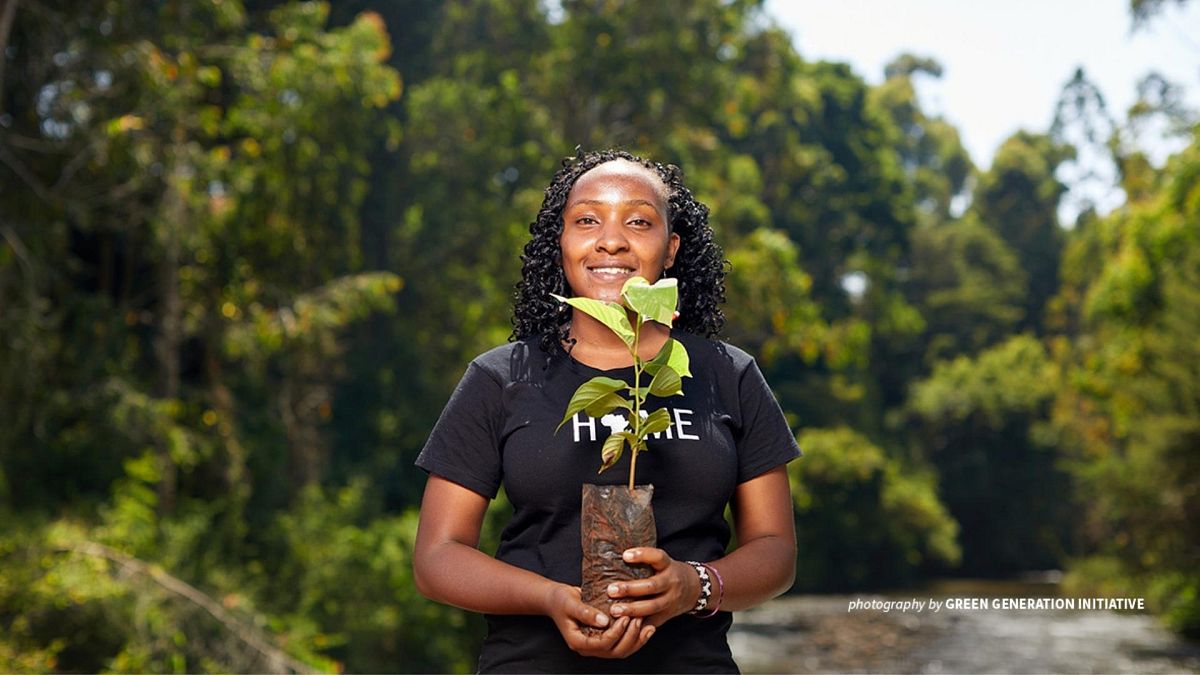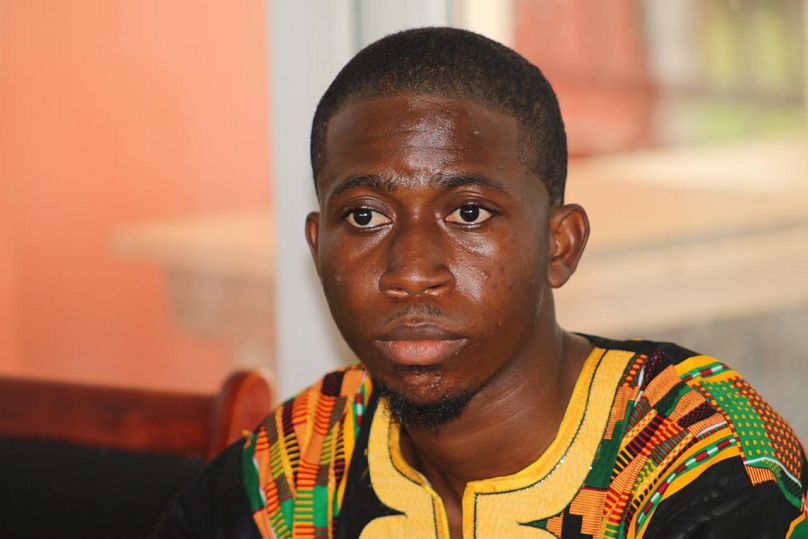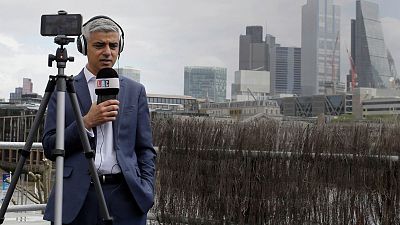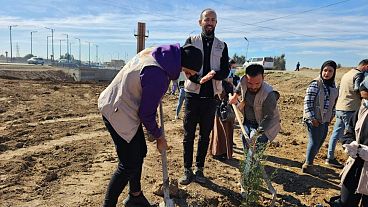The Iris Project’s creators say that just a small amount of money can make a huge difference to young people fighting to save nature.
Nominations open today for a new prize to help young people around the world protect and restore nature.
Every year, the Iris Project provides winners aged 14 to 24 with three prizes, $5,000 (€4,560) for the Stem prize, $10,000 (€9,121) for the Seed prize and $15,000 (€13,682) for the Iris Prize. It was set up by the Goldsmith family in memory of 15-year-old Iris Goldsmith, a young British environmentalist who died in an accident in 2019.
“She always had a sense of the sacred, you know, and a love of nature. I have no doubt that had she lived longer, she would have achieved remarkable things,” her father Ben Goldsmith tells Euronews Green.
The prize was created with Iris in mind, to “identify the most promising and energetic and sparkling teenager around the world.”
Ben Goldsmith is an advisor to the UK Government on nature recovery - but he is also a green investor who understands the power of sustainable finance.
“I can’t think of another major problem in which so much can be achieved with such modest sums of money.”
Relatively small amounts of funding can enable young people to take time off work to focus on a project, get legal advice, build a website or even travel to spread their message around the world.
“None of these things cost a great deal of money. But it is a great deal of money if you're a teenage environmentalist in a marginalised community,” he explains.
A ‘Nobel Prize’ for teenage environmentalists
The Iris Project isn’t just offering money, there are also mentoring and training programmes to ensure the young people that win are heading in the right direction.
“Really what we want to do is be a kind of Goldman prize or a Nobel Prize for teenage naturalists and environmentalists. I think Iris would have loved it,” Goldsmith says.
A group of advisors aged 20 to 24 from Nepal, Fiji, Macedonia, Nigeria, Liberia and the United States worked with experts to shape the project to make sure it was youth-led, inclusive and accessible. For those the prize is hoping to uplift, they are closer in age, closer geographically - and closer to the action.
Goldsmith adds this “brilliant youth advisory panel” is best placed to help figure out exactly what the winners need and how the Iris Project can be of help. He says that young people have a relentlessness and a courage that can lead to “really magical things”.
“I think there is a tremendous wisdom among the younger generations at the moment on this issue. And so if we can find the best of those organisers, the best of those activists and really give them a leg up, I think that will adopt something useful.”
Nominations from around the world
Over 40 different environmental conservation, youth and Indigenous focused organisations will help the Iris Project by nominating potential prize winners. There’s a strong focus on making sure that marginalised voices are being championed.
Ezekiel Nyanfor, founder and executive director of Liberian Youth for Climate Actions, is one of the youth ambassadors spreading the Iris Project throughout Africa. He says that young people on the front lines of the climate crisis are the “most important candidates to access the fund.”
“These are the people seeing flooding, seeing drought, seeing a lack of water, seeing a lack of clean energy,” Nyanfor explains. “It is important that the most affected communities are priorities.”
It is this first-hand experience that makes them best placed to find solutions that work for their communities and those further afield. Africa is the world’s youngest continent but most young activists in the Global South don’t have the same access to finance or media exposure as those in the Global North.
Money is a barrier that prevents these young people from scaling or implementing their projects - from making a bigger impact. For Nyanfor himself, it meant missing out on attending COP26 in November last year.
“Finance is the engine for any project,” he says. “When African youth have the funding, they can compete on the global stage.”
_Anyone interested in applying for the prize can find more information here. _




